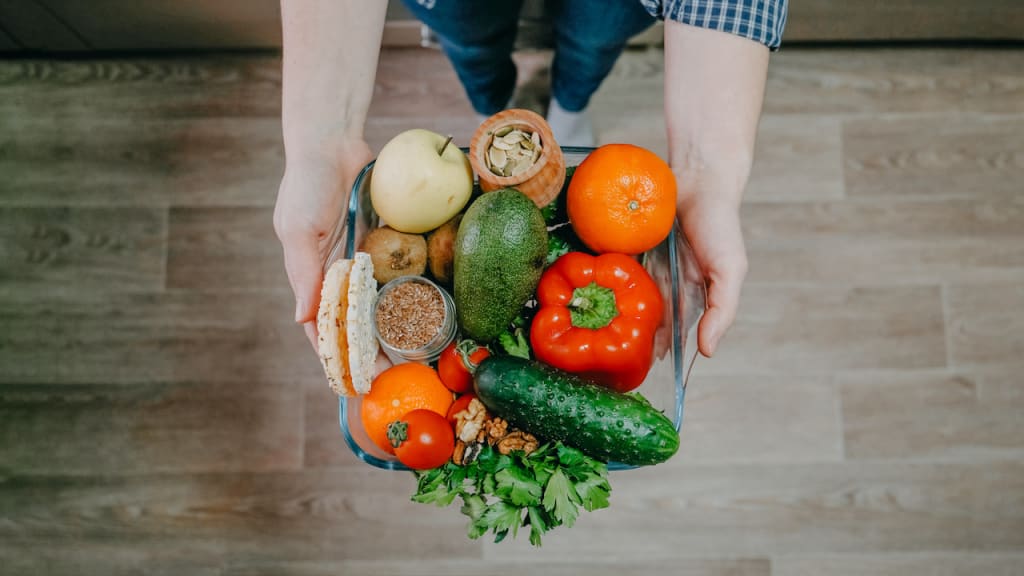Could a Plant-Based Diet Help You Live a Longer Life?
Breaking Down The Correlation Between Longevity + A Meatless Diet

Could following a plant-based diet help you live a longer life? There’s no denying that plant-forward diets are becoming increasingly popular in the US and across the world. But if you’re a health-conscious individual who hasn’t made the switch yet, you may be wondering if it’s worth the effort.
There are lots of reasons to go plant-based. For some, it’s about the quality of life of the animals and not taking their lives for food. For others, it’s about the environmental impacts of monoculture and high-intensity agriculture.
But as it turns out, science is beginning to discover that going plant-based may help you live a longer life, too, and that’s something everyone can get behind. Let’s take a look at the evidence so you can decide for yourself if going plant-based is right for you.
The Benefits of a Plant-Based Diet for an Aging Population
Plant-based diets are lower in fat and cholesterol and higher in fiber than omnivorous diets. That means it reduces the likelihood of obesity, which can significantly shorten the human lifespan by contributing to a host of health issues.
As science learns more and more about how eating plant-based affects human health, it’s becoming evident that following a strict plant-based diet increases longevity and reduces the risk of chronic disease.
A study published in the Journal of the American College of Nutrition shows that going plant-based reduces your risk of type-2 diabetes and heart disease. In fact, the study suggests that making the switch could significantly reduce the number of cardiovascular-related deaths in the United States.
Their findings are quite spectacular! They concluded that going plant-based cuts the risk of metabolic syndrome in half. It could also reduce the risk of type 2 diabetes by half and the risk of heart attack by as much as 40%.
This study places particular concern on our aging global population. The number of adults over 60 is expected to double by the year 2050, which will undoubtedly place a significant strain on an already stretched healthcare system. Promoting a plant-forward diet worldwide could be the answer to this impending crisis.
Considering “Blue Zones”
There’s even more evidence to show that plant-based diets increase longevity. There are several places around the world called Blue Zones. People in these areas tend to have longer life spans.
For example, the people of Okinawa, Japan have longer life spans than almost anywhere else in the world. And, folks from Loma Linda, California live about 10 years longer than those in other parts of California.
So, what do people from these places have in common? They live a clean, moderately active lifestyle… and they tend to follow a plant-forward whole food diet. The typical diet in Okinawa includes lots of leafy green vegetables, sweet potatoes, and soy products.
Plant-Forward Diets and Cognitive Health
Interestingly, the people in Blue Zones not only live longer, but they also maintain their cognitive health longer, too. Diets that are rich in plant foods with minimal animal products have a significantly lower risk of developing Alzheimer’s disease.
If a vegan diet isn’t for you, the MIND diet or DASH diet may be an excellent compromise. These plant-forward diets offer similar health benefits to a vegan diet but allow for limited consumption of poultry, dairy, and eggs.
Plant-Based Diets and Nutrient Deficiencies
Because a vegan diet doesn’t allow all for the consumption of any animal products, nutrient deficiencies can be a real concern. When the topic of switching to a plant-based diet comes up, protein is usually the primary nutrient people are concerned about.
The importance of protein for overall health can’t be overemphasized. It’s found in every cell of the human body, and life couldn’t exist without it. Protein is required for most essential body processes, from immune function to oxygenating the blood.
With that in mind, how can you ensure that you’re getting enough protein on a plant-based diet? It turns out it’s actually not that difficult. Soy products are a wonderful source of plant protein, and they contain all of the essential amino acids your body needs in a highly digestible form.
In fact, legumes in general are extremely nutritious and full of protein. Whole grains, nuts, and seeds are excellent options too.
Although protein tends to get the most attention, vitamin B-12 and D can also be deficient in a plant-based diet if you don’t pay attention. That’s mainly because these nutrients are primarily found in animal foods.
However, nutritional yeast, enriched dairy alternatives, and many soy products are good ways to get B-12 on a plant-based diet. Vitamin D is also found in fortified dairy alternatives, as well as mushrooms and some cereals. Your body can also synthesize its own vitamin D if you spend a little time in the sun each day.
The Bottom Line
While many people switch to a plant-based diet for moral reasons, there is sufficient evidence to prove that it can help you live a longer life too.
And, contrary to popular myth, it is very possible to eat a nutritionally balanced diet without consuming animal foods. In fact, plant-based diets actually tend to richer in many nutrients and much lower in saturated fats than omnivorous diets.
It’s also worth mentioning that the cost of meat products has skyrocketed in recent years. Plant-based proteins are much less expensive, so making the switch is a win for your wallet, too.
About the Creator
Nicole McCray
Nicole is a content creator who spends her time writing about everything, including beauty, health and wellness, pet care, music, movies, and TV. She writes for various blogs and loves using her insight to help any audience!







Comments (1)
Love it, and it is good that you mentioned the Blue Zones. Eating fruit and vegetables and drinking plenty of water is all I crave, apart from the odd chocolate. Thank you so much.